By: Rev Kris Harrison
Dudeist Priest, Synod of the Dude
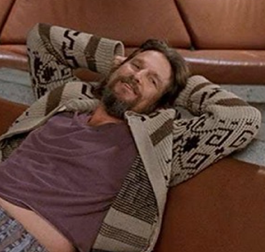 “Why is it that the good old-fashioned American slacker gets no respect for his detachment, but the Buddhist monk does? Why is everything cooler when it happens in a foreign country?”
“Why is it that the good old-fashioned American slacker gets no respect for his detachment, but the Buddhist monk does? Why is everything cooler when it happens in a foreign country?”
– Dex, The Tao of Steve
Most of us grew up admiring heroes such as Captain America, Bill Gates, and Neil Armstrong. We studied their every move, hoping to obtain some sliver of their magic, dreaming of someday having their success. When asked, “What do you want to be when you grow up?” Their image shone clear in our mind.
However, my heroes didn’t wear capes, spacesuits or halos, they weren’t concerned with saving the world or making millions. My heroes wore robes, shorts and sunglasses, spoke softly, and took it easy. My heroes were slackers.
 Now, some of you are thinking, “Not aiming very high, are you?” and I can understand this reaction, to a point. There is a common misconception about the slacker, the layabout, the bum who always loses. Slackers are held to standards they roundly reject and lose at a game in which they’ve never played a hand. They are anti-heroes in many ways, but what’s a hero? Unlike the world-saving heroics we find in history books and movies, slackers hold firmly the attitude that there is nothing to be saved, really. The world is what it is, and they dig it.
Now, some of you are thinking, “Not aiming very high, are you?” and I can understand this reaction, to a point. There is a common misconception about the slacker, the layabout, the bum who always loses. Slackers are held to standards they roundly reject and lose at a game in which they’ve never played a hand. They are anti-heroes in many ways, but what’s a hero? Unlike the world-saving heroics we find in history books and movies, slackers hold firmly the attitude that there is nothing to be saved, really. The world is what it is, and they dig it.
During my teenage years, watching slacker movies exposed me to an alternative attitude towards life. While most of the culture was pushing me to strive, reach for the stars, change the world and just do it, the characters on the screen seemed to be quite content with flowing through their days, abiding the trials and tribulations of the modern world with a detached sense of calm. Their pleasures were simple and their goals seemingly non-existent. They were free.
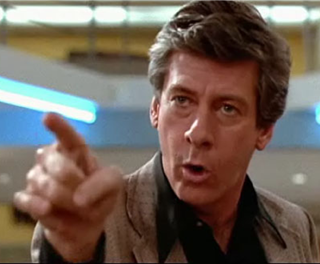 I also noticed how the powers that be ridiculed and attempted to break the humble slacker’s cool. In each story, teachers, police officers, bosses, nihilists, and significant others attempted with little success to mold their listless demeanor into that of a goal-driven, anxious, achiever. I empathized with the slacker figure, wondering why their calm, cheerful disposition pissed off so many people. It seemed the hero of the story was actually the villain, the subtext advocating against their laid-back lifestyle.
I also noticed how the powers that be ridiculed and attempted to break the humble slacker’s cool. In each story, teachers, police officers, bosses, nihilists, and significant others attempted with little success to mold their listless demeanor into that of a goal-driven, anxious, achiever. I empathized with the slacker figure, wondering why their calm, cheerful disposition pissed off so many people. It seemed the hero of the story was actually the villain, the subtext advocating against their laid-back lifestyle.
But why?
Slacking Through the Ages
Slackers are far from a modern phenomenon, and extend well beyond the movie screen. In Tom Lutz’s excellent book Doing Nothing: A History of Loafers, Loungers, Slackers and Bums in America the slacker figure is examined in its many incarnations since the beginning of the Industrial Revolution. He explains how the loafer/lounger/idler/slacker is a reaction to the work culture of the era and the social values that accompany it. As the work culture evolves, so does its counterculture. Though looking further back, Lao Tzu, Jesus and Diogenes were also telling us to take er’ easy centuries ago and Buddhism has successfully elevated sitting around, doing nothing, to a religious rite.
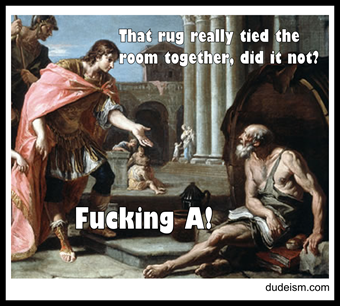 However, if I had said the Buddha or Jesus were my heroes, I doubt I would receive the same befuddled response. Both men were homeless wanderers, preaching the Gospel of the Almighty Abide, probably being remonstrated by many to do as their parents did, and get a job, sir. Nevertheless, they advised others to take it easy, love their neighbor and not to worry too much about status, wealth and what-have-you. One could easily imagine the Dude, Spicoli, Kerouac, or Randall Graves (Clerks) saying, “Do not be anxious about tomorrow, for tomorrow will be anxious for itself. Let the day’s own trouble be sufficient for the day,” (Jesus said it, am I wrong?) before burning a J. So what’s with all the aggression?
However, if I had said the Buddha or Jesus were my heroes, I doubt I would receive the same befuddled response. Both men were homeless wanderers, preaching the Gospel of the Almighty Abide, probably being remonstrated by many to do as their parents did, and get a job, sir. Nevertheless, they advised others to take it easy, love their neighbor and not to worry too much about status, wealth and what-have-you. One could easily imagine the Dude, Spicoli, Kerouac, or Randall Graves (Clerks) saying, “Do not be anxious about tomorrow, for tomorrow will be anxious for itself. Let the day’s own trouble be sufficient for the day,” (Jesus said it, am I wrong?) before burning a J. So what’s with all the aggression?
It seems that Dex’s insight at the start of this-a-here essay addresses a key theme. For example, if we encounter a monk garnished in bright orange robes, we revere them for their enlightenment and commitment to their philosophy. However, your typical Phish-shirt-wearing-liberal-arts-major is scoffed at for their listlessness and malaise. Maybe it is the exotic, yet superficial, allure of foreign cultures that places the Buddhist monk on a pedestal and leaves the slacker in the mud (ah, but without mud there can be no lotus!)
 Take a look at the lifestyle and work schedule of some of our greatest thinkers: Socrates spent his days bothering the social elite about just, like their opinions, man, Nietzsche was chllin’ in the mountains thinkin’ about stuff, and Kant meandered around town solving epistemic problems. Not to mention Hemingway’s side careers as a drinker and fisherman to boot, and Mozart spending more time orchestrating parties than symphonies. Yet, each had a tremendous impact in their respective fields. Not exactly a bunch of lightweights.
Take a look at the lifestyle and work schedule of some of our greatest thinkers: Socrates spent his days bothering the social elite about just, like their opinions, man, Nietzsche was chllin’ in the mountains thinkin’ about stuff, and Kant meandered around town solving epistemic problems. Not to mention Hemingway’s side careers as a drinker and fisherman to boot, and Mozart spending more time orchestrating parties than symphonies. Yet, each had a tremendous impact in their respective fields. Not exactly a bunch of lightweights.
In my youthful admiration of the lazy, good-for-nothing deadbeats I recognized saintliness amidst the absurdity of modern life. Each of them takin’ er easy for the rest of us sinners. The sins in question include our failure to respect the art of living and the capitalist appetite for status and wealth, both burning the world for the sake of progress.
 Yet, the slacker does not preach: they remain in the world, but not of it. They don’t buy into the rat race, nor do they seek refuge in the mountains. Most importantly, they are not progress hating luddites, but rather enjoy what pleasures the modern world has to offer while avoiding the hangups. The Dudes of the world seek balance in an age of extremes.
Yet, the slacker does not preach: they remain in the world, but not of it. They don’t buy into the rat race, nor do they seek refuge in the mountains. Most importantly, they are not progress hating luddites, but rather enjoy what pleasures the modern world has to offer while avoiding the hangups. The Dudes of the world seek balance in an age of extremes.
Aristotle praised moderation and excellence (arete, or quality/virtue) and it seems the slacker seeks the same. The Dude only wants his rug back, Spicoli some tasty waves, and Harold and Kumar their burgers. Their desires are simple. However, in a culture thriving on dissatisfaction and consumerism, contentment becomes a deadly sin.
Are You Employed, Sir?
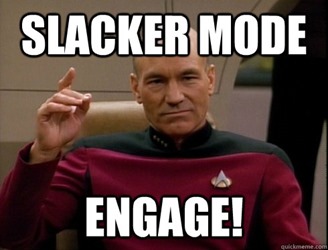 So, what am I blathering on about? As an adult, I have found wisdom in the Dudely ways of my slacker brethren, fictional or otherwise. After years spent, challenges met, and obstacles overcome, my admiration for the slacker lifestyle remains strong. Furthermore, I have found that I am not alone in my regard for the saintly qualities of the ne’er-do-well. It seems intellectuals, monks, artists, and even many trendy hipster slackers provide alternative approaches to living. Together, they all value acceptance over improvement, compassion over selfishness, and treat life as an art rather than a commodity.
So, what am I blathering on about? As an adult, I have found wisdom in the Dudely ways of my slacker brethren, fictional or otherwise. After years spent, challenges met, and obstacles overcome, my admiration for the slacker lifestyle remains strong. Furthermore, I have found that I am not alone in my regard for the saintly qualities of the ne’er-do-well. It seems intellectuals, monks, artists, and even many trendy hipster slackers provide alternative approaches to living. Together, they all value acceptance over improvement, compassion over selfishness, and treat life as an art rather than a commodity.
In the end, I leave it up to you, cuz’ I certainly ain’t working anymore to convince ya.
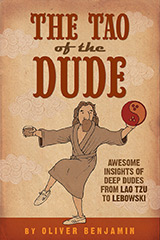

Abide unto others, as you would have them abide unto you.
Where is my latest beer?